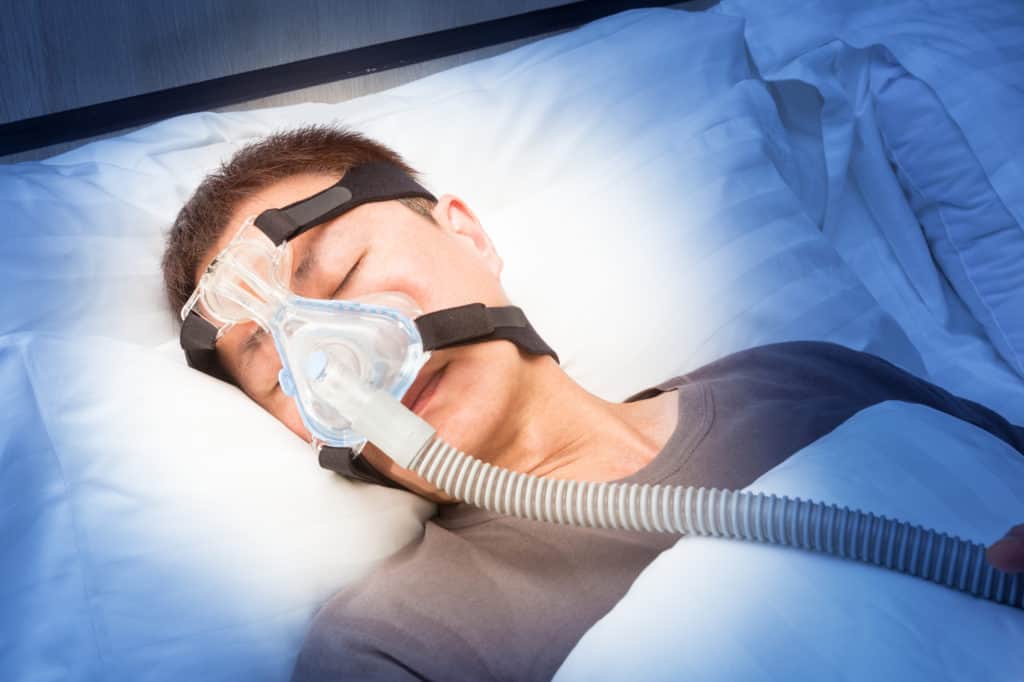What Happens If My CPAP Loses Power?
Blizzards, thunderstorms, tornadoes, and the dozen other weather conditions can come through at any given day and damage power lines. A blackout can and will leave you without electricity, and this can be a problem for people who use CPAP machines for long or short-term therapy.
You know your doctor will tell you that it’s never a good idea to skip a therapy session because it can negatively impact your health. If your CPAP doesn’t work, your airways could get blocked. Your body won’t be able to regulate your blood pressure properly, and you could also wake up feeling groggy.
But, what else can happen when you CPAP loses power? How do you tell if your CPAP quits working, and what can you do to ensure you’re never without it? If you’re curious about the answers to these questions, we’ll answer them for you below.
The Risks Associated With a CPAP Machine Failure
People with obstructive sleep apnea will feel a high amount of stress if they have to go a single night without this device. You could have a hard time falling asleep without it, and you won’t get the continuous airway pressure you need to get a good night’s rest.
The additional stress of not having your CPAP can trigger your insomnia. This is especially true if your doctor made you aware of the dangers of your condition and skipping your therapy. There are several complications that come into play when you don’t treat your sleep apnea like depression, heart disease, stroke, high blood pressure, and pre-diabetes or diabetes.
Not treating your chronic health conditions with a CPAP can cause you to stop breathing regularly in your sleep. In turn, you’ll experience things like low oxygen in your blood and sleep deprivation. Low blood oxygen prevents your brain from functioning at a 100% rate, and it can also slow down your body’s natural healing processes.
Short-term, it can make it difficult to tackle your daily tasks, lower your ability to concentrate, and impact your reaction time. If you operate heavy machinery at work or drive a car and experience sleep deprivation, it can get dangerous.

Surgical patients can experience problems while they go under general anesthesia, and cancer patients can experience higher complications if they go without their CPAP when you compare them to people who have it all of the time. It increases the risk of suffering from chronic kidney disease. If you go for a long time without your CPAP, it increases your risk of dying because you’re not treating your health condition.
When your CPAP machine stops working because you have a power failure, it can be scary. Interrupting your necessary therapy can affect your safety and health, and this is why we’ll give you several things you can do to ensure you’re never without your CPAP due to a power failure or blackout.
How to Tell if Your CPAP Quits Working
It can be difficult to tell when your CPAP fails unless you’re awake when it happens. If it fails during the middle of the night, there are several symptoms you can experience when you wake up. We’ve rounded up the biggest signs that can warn you that your CPAP quit working below.
- Cognitive issues like brain fog, grogginess, and difficulty making decision
- Daytime sleepiness
- Difficulty getting up in the morning
- Exhaustion
- Headaches
- Hypersensitivity to pain
- Irritability
- Snoring
- Sore throat
The more nights you go without your CPAP machine, the more severe the symptoms can get. This is why you want to have backups in place to keep your machine functioning in all weather conditions.
How to Stop Your CPAP Machine From Losing Power
Fortunately, there are several things you can do to stop your CPAP machine from losing power if you don’t have any electricity. Having one or more available will give you peace of mind and help you sleep better.
CPAP Adaptor
While the power may go out, having a CPAP adaptor handy can help you hook your machine up to an alternate power source like a generator, battery pack, or a car battery. The cords are usually very lightweight and easy to maneuver, and they’ll run as long as your alternate power source does. Just make sure you’re adaptor works with your CPAP.
CPAP Battery
Many CPAP machines plug into the wall to give you a continuous power source, but others have batteries built right into the machine. You can also buy battery packs, and these are great to have if you want to take your CPAP machine with you when you’re out and about. You do want to make sure your battery is charged at all times, and make sure it works with your particular device.
Travel CPAP
Travel CPAP devices have all of the bells and whistles of the larger machines, and these machines weigh in at around a pound. The FAA approves them, and most of these devices come with their own batteries built in that make them great for emergencies. They’ll function through a power outage and help you have the machines you need until your power comes back on.
Bottom Line
Going without a CPAP machine due to a power outage can have negative impacts on your health, and this is why it pays to be prepared before you’re facing a power outage. Along with giving you peace of mind, you’ll be able to rest assured that you can continue your therapy in all weather conditions. Don’t wait for an emergency. Invest in a high-quality CPAP machine with backup today.
